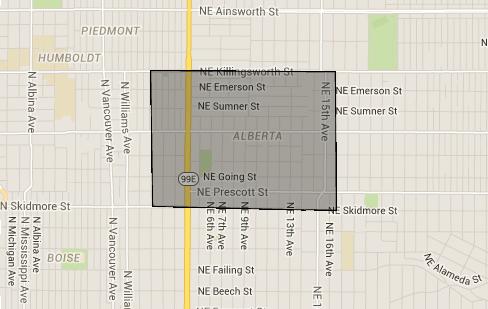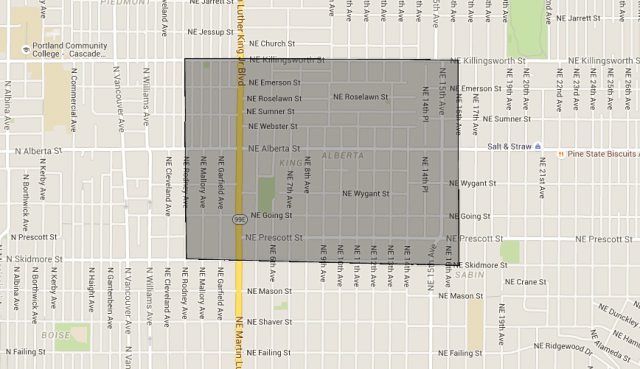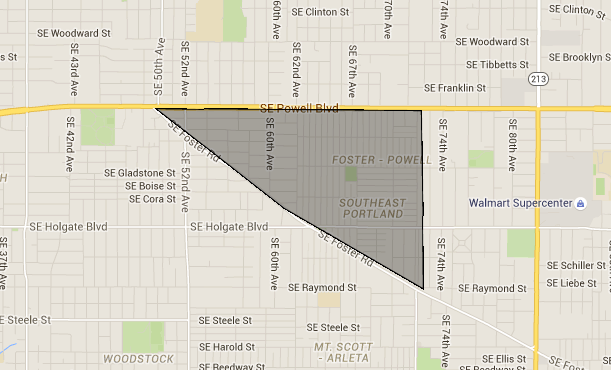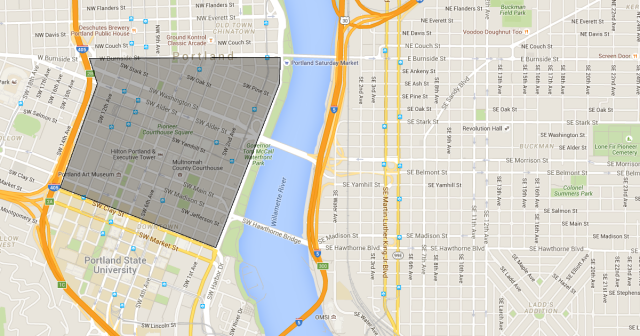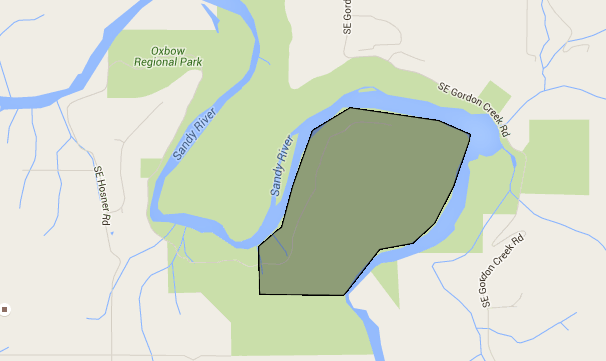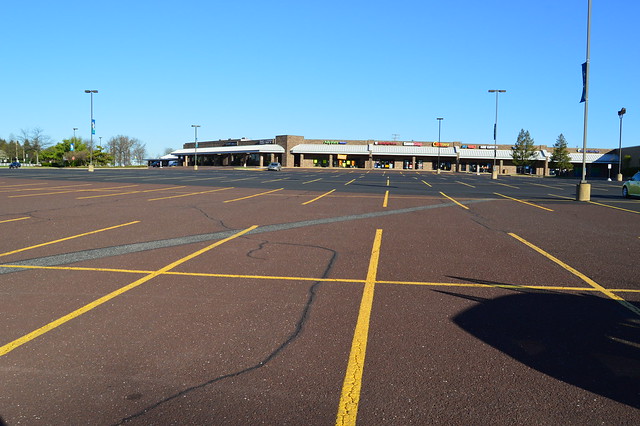
Everyone knows Multnomah County is growing, and that most new residents are buying or bringing in cars, too. In all, state records show, 8,709 more passenger vehicles are registered in the county than there were in 2007.
But a review of car registration statistics shows that if passenger vehicle ownership were still as popular in the county as it was in 2007, it would have had to find room for 38,501 more cars and trucks instead.
How many cars are we doing without? Well, if we built a parking lot to hold the 38,501 cars that didn’t show up and assumed a standard 325 square feet per space, we’d need about 287 acres of land. For the sake of scale, that’s everything between NE Killingsworth, Skidmore, Rodney and 16th:
Or, if you prefer, it’s the entire Foster-Powell neighborhood west of SE 73rd Avenue:
Or it’s Portland’s central business district:
Or about half of Oxbow Regional Park:
(Of course, that’d only be enough room to park each car once. In a U.S. city, there are something like 3.3 parking spaces for each car.)
But because of the 7 percent drop in per-person car ownership in Multnomah County over the last eight years, those 38,501 cars haven’t arrived.
Advertisement
That’s despite a regional economy that continues to rocket out of the recession, especially in Multnomah County. Despite a U.S. economy that’s been sending off mixed signals, the Portland-area jobs market keeps doing well. It’s ranked 15th of the 50 largest metro areas for job creation since 2008; in the year to April 2016, local jobs grew 3.2 percent, about twice the average rate for metro areas.
But for whatever reason, all the additional money pouring into Portland hasn’t been spent on more cars. Car registration rates have ticked up a bit since the recession, but only slightly.
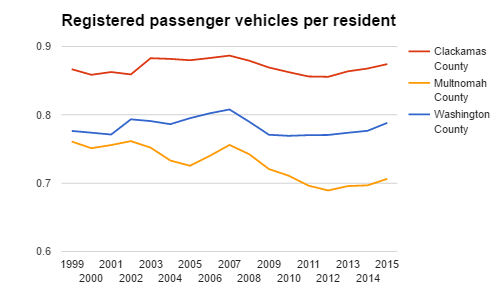
That’s not the case nationwide or in Washington and Clackamas counties. Unlike in Multnomah County, car registration rates there have basically returned to their long-term average rate.
When we last looked at car registration rates, I asked Todd Litman of the Victoria Transport Policy Institute why this ebb in car ownership might be happening.
He said it’s a combination of the Baby Boomers entering retirement and the improvement of non-car transportation options.
“Somebody who 10 years ago would have driven to work is now not only seeing better bicycle facilities and hearing about the importance of healthy lifestyles and getting lectures from their physician about the benefits, but they’re also seeing their neighbors make that shift and it’s a little more socially acceptable,” he said. “When the car breaks down, they’re not going to replace it.”
You can explore the parking lots that weren’t needed on this Google Map we made.
— Michael Andersen, (503) 333-7824 – michael@bikeportland.org
Our work is supported by subscribers. Please become one today.
